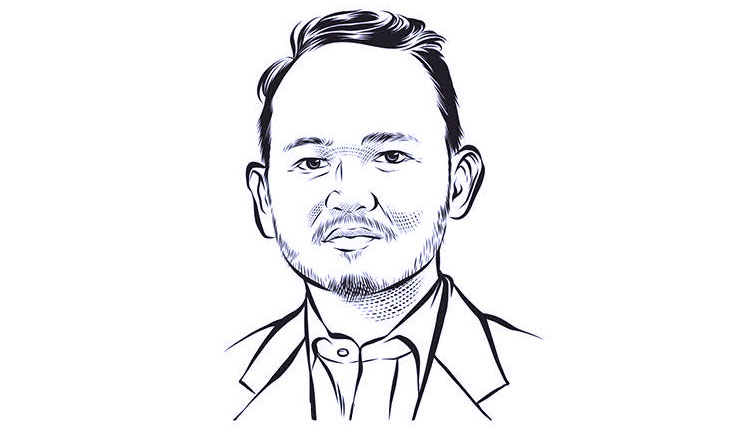Insisting Facebook: Debunk Politicians for Democracy

TIMESINDONESIA, JAKARTA – On November 4-5, 2019 no less than 100 hoax busters from various countries were invited to Facebook in the "Global Fact-checking Summit" at its headquarters, Menlo Park, San Francisco. These fact-checkers come from a number of institutions that are certified by the International Fact-Checking Network (IFCN), which actively checks the facts (“debunk”) and publishes them regularly. From Indonesia, there were representatives from 3 mass media and Indonesian Anti-Defamation Society (MAFINDO) organizations.
From several agendas meetings, there is one other point that I think is important to highlight, which is related to Facebook's new policy not to debunk politicians. Facebook's policy has received strong protests from a number of fact-checking services. One of those who protested the policy was a media from the Netherlands, NU.nl. "What is the point of fighting fake news if you are not allowed to tackle politicians?" Asked NU.nl's editor-in-chief Gert-Jaap Hoekman in a blog post as quoted by The Verge November 26, 2019. The decision follows a ban on incidents Facebook for the label Nu.nl made for the advertisement of Dutch politician Esther de Lange as a false statement. In his statement, Facebook said that politicians' speeches should not be examined.
Advertisement
In Indonesia context, MAFINDO(Indonesian Anti-Defamation Society) data shows that political issues are the highest hoax in Indonesia besides religion and health issues. The policy is not too friendly towards political literacy efforts and the right to obtain correct information for the public as part of public literacy, and efforts to strengthen civil society. One alternative is to expose various fact-checking practices by creating a debunk showcase.
The Urgency of Politics Debunk
"Debunk" is an attempt to expose claims that are considered to be false, excessive, or pretentious. In short sentences, the Merriam-Webster online dictionary says that debunk is an attempt to expose a hoax or falsehood. This term is often associated with skeptical investigations of controversial topics such as UFOs, claiming paranormal phenomena, cryptids, conspiracy theories, alternative medicine, religion, or exploration or periphery of scientific fields or scientific research.
Some countries that have successfully overcome hoaxes are countries with high digital literacy. In contrast, hoaxes are increasingly fertile in countries where literacy is low. Finland's success cannot be separated from the inclusion of digital literacy in the education curriculum since elementary school level. Based on a survey conducted by the Indonesian Internet Service Providers Association (APJII) in 2018, 64.8 percent of Indonesia's population is connected to the internet. Thus, of the total 264.16 million population of Indonesia, 171.17 million people are already connected to the internet with the dominance of users on Java and Sumatra. The average internet usage per day is above 8 hours with YouTube as the most accessed social media. The number of hoaxes increased during the political campaign period and experienced an upward trend from year to year.
This situation has led to the increasing need for fact checking as part of efforts to fight hoaxes. The 3PFC (third Party Fact Checker) program that Facebook has been working on since 2016 is a breath of fresh air for the fact-finding activity. The data collection technology features on the internet, Crowdtangle, have also helped to monitor hoax trends. However, what is unfortunate is Facebook's policy not to carry out the debunking of politicians which in my opinion is very important in maintaining the quality of information as part of a healthy democratization process.
Citing Jaques Ranciere's thoughts about democracy, disturbances, and voices that convey different opinions are the spirit of democracy. The French-born French philosopher said politics in democracy for him was "always a disturbance", "disagreement" or dissensus. The democracy that he imagined was not a harmony found in a consensus (as imagined by Habermas). Being critical on social media and checking facts about politicians' claims often means disturbing establishments, but that is precisely where democracy works.
Literacy through the Debunk Showcase.
A number of fact-checking activists are currently pushing for a debunk showcase option. With this option, the content that has been proven to be a hoax that has been immediately submerged by Facebook can be raised again as part of public literacy. With one click, hundreds of thousands of people will suddenly be educated on hoax content and how hoaxes work. On main media, several media have published a rubric of "hoaxes or facts" to provide clarification on various posts.
According to journalistic ethics, correction for a post must be in the same post (not by creating a new article). As for posting content on Facebook, it violates the rules on Facebook. Furthermore, this practice is very dangerous and detrimental to the public. With this mode, people who have been exposed to hoaxes do not know that the previous posts were hoaxes and corrected by new posts.
By showing the history of a hoax, it is hoped that the community will become easier to recognize hoaxes and make it difficult for hoax makers to manipulate the public. By doing hit-and-hit-again, some hoax posts that have been debunked by MAFINDO or another fact-checking media counter by making new posts that correct the hoax that was made before. The tricky part, the debunk media is cornered me on debunking that has been made. This is an era in which fact checking can overcome a variety of lies in the post-truth era.
*) Penulis: Finsensius Yuli Purnama, Lecturer at Universitas Katolik Widya Mandala Surabaya
*)Tulisan Opini ini sepenuhnya adalah tanggungjawab penulis, tidak menjadi bagian tanggungjawab redaksi timesindonesia.co.id
**) Ikuti berita terbaru TIMES Indonesia di Google News klik link ini dan jangan lupa di follow.
| Editor | : Yatimul Ainun |
| Publisher | : Lucky Setyo Hendrawan |

